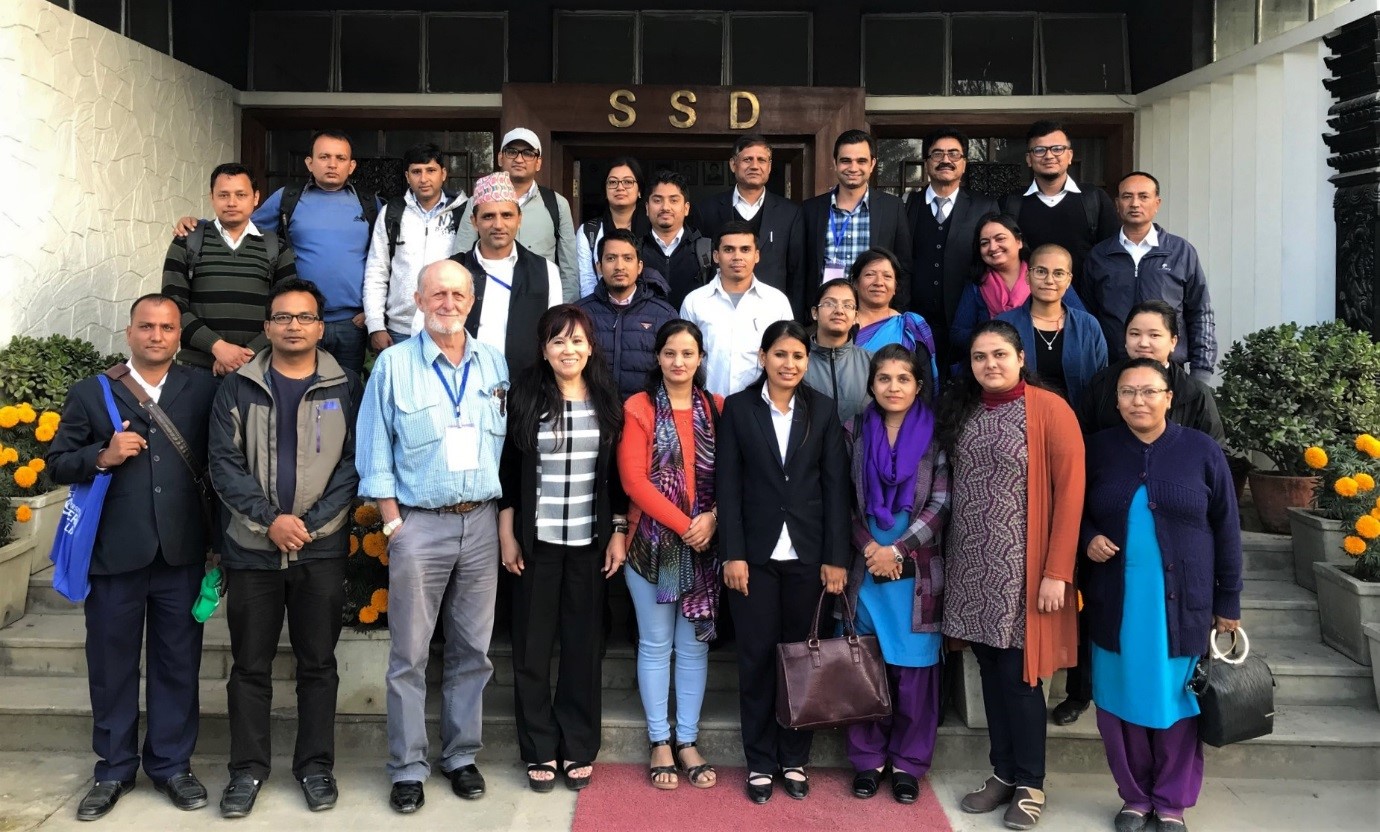KATHMANDU, Nepal (CIMMYT) — Clear and consistent communication is important in any work, and no less so when you are collaborating to improve farmer livelihoods. CIMMYT and partners in South Asia are therefore facilitating Farm Economic Analysis workshops to ensure that stakeholders from a variety of professions are on the same page when it comes to the terminology of agricultural economics. Fay Rola-Rubzen and Roy Murray-Prior from the University of Western Australia presented the first full day workshop at the National Agricultural Research Council (NARC) campus in Kathmandu on November 1, 2018. Deepak Bhandari and Yuga Nath Ghimire of NARC officiated the event. More than thirty participants from CIMMYT, the Department of Agriculture and NARC attended the training, which included agronomists, agricultural economists, extension officers and research associates.
The workshop series is part of CIMMYT’s Sustainable and Resilient Farming Systems Intensification (SRFSI) project, which aims to reduce poverty in the Eastern Gangetic Plains of Nepal, India and Bangladesh by making smallholder agriculture more productive, profitable and sustainable while safeguarding the environment and involving women.

“The main objective [of the workshops] is to make sure we have the same language and understanding of what we are measuring,” said Rola-Rubzen. “When we go to the field, usually, it may not be the economists gathering the data. It is critical for both economists and non-economists to understand what we are talking about so that we are comparing apples with apples, not apples with oranges.”
Rola-Rubzen and Murray-Prior facilitated a highly specific and tailored training, including engaging the participants in the practical analysis of data collected by SRFSI in the Sunsari district in the eastern Terai of Nepal. Topics covered in the training included gross margin, net revenue and sensitivity analyses, as well as matching analyses to data types.
The workshop was well-received by participants, and will also be conducted in India and Bangladesh to ensure further consistency in communication and to facilitate the cross-country analysis and comparison of data “When we work with economists, it will be easier to understand how they are analyzing their data and making their arguments,” said Sofina Maharjan, assistant research associate for the SRFSI project.
The Sustainable and Resilient Farming Systems Intensification project is funded by the Australian Centre for International Agricultural Research.
 Capacity development
Capacity development